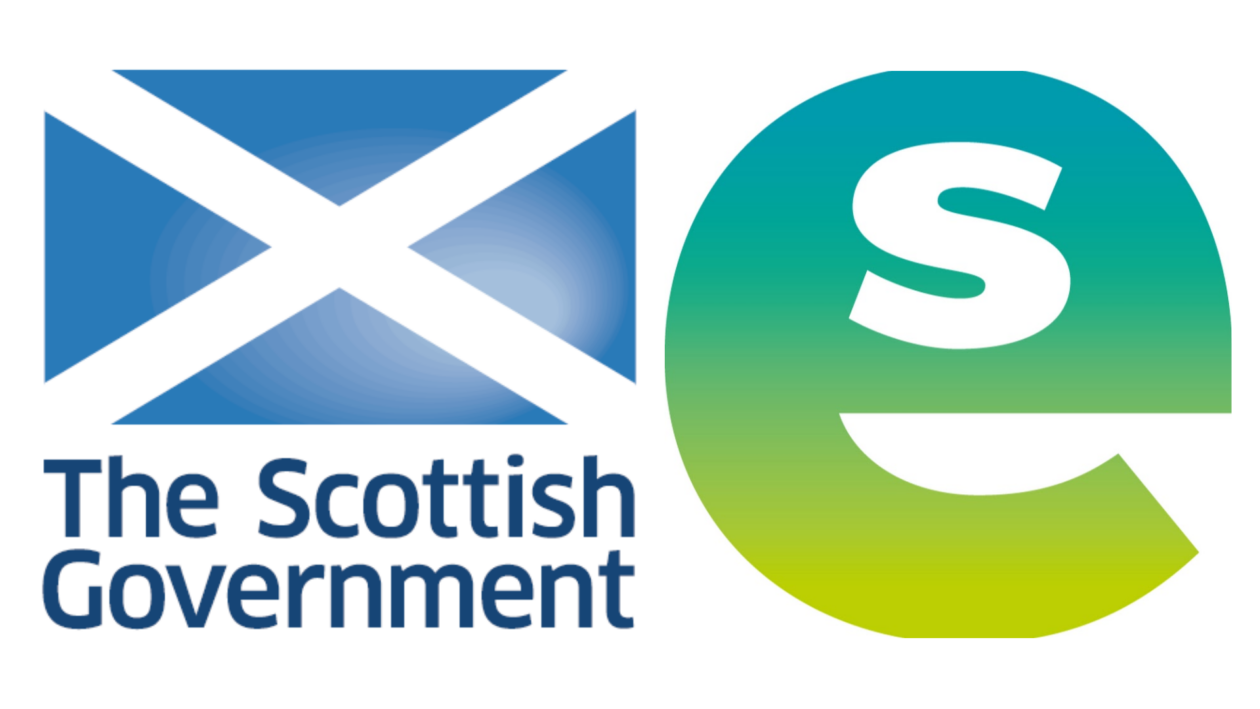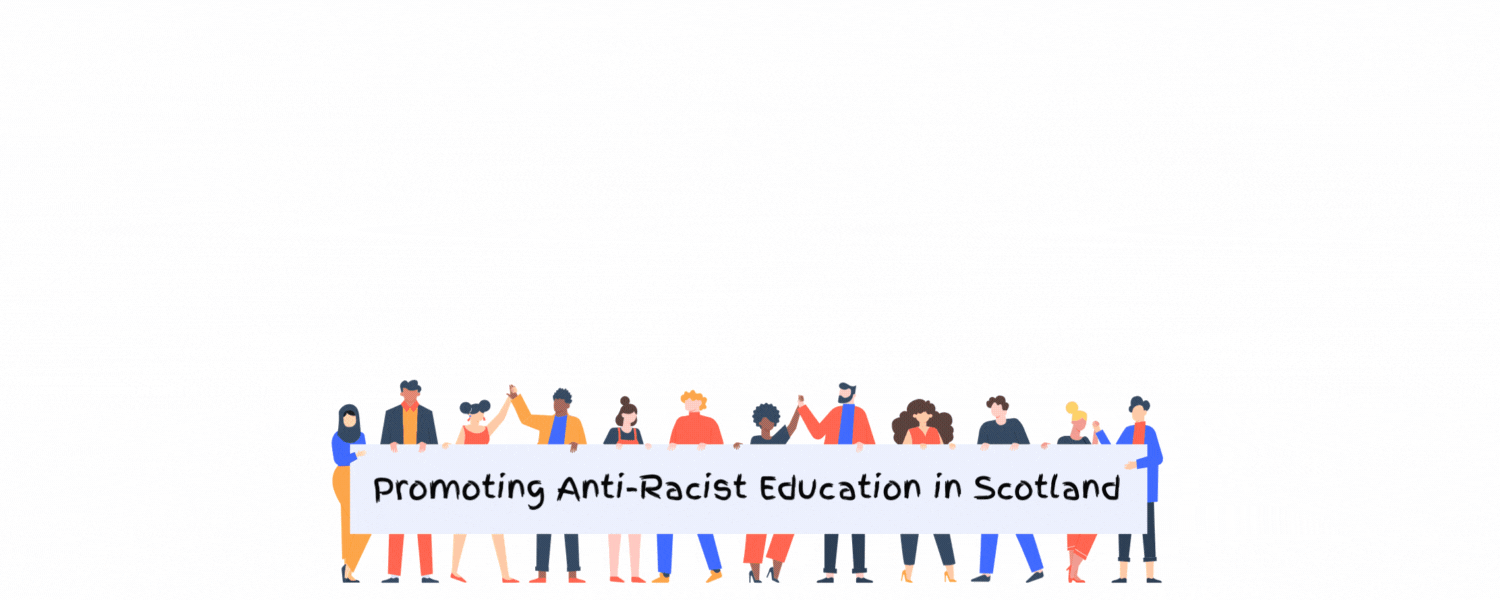Anti-Racist Curriculum Principles Case Study – Royal High School
Context:
The Royal High School in Edinburgh began their journey towards the co-construction of an anti-racist curriculum in 2021. A range of factors led to this, including:
- Leadership and expectation from the local authority
- High-profile cases of racist incidents in city schools
- Wider context of ongoing whole school focus on all areas where inequality present
- Awareness-raising and professional learning for all Edinburgh headteachers
- Inspiration from Liberton High School and the impact of their whole-school approach to antiracism
- A commitment to provide racially-literate support to disaffected young people of colour, a need for support in handling racist incidents and a need for the early intervention and prevention of racism.
This case study outlines some of the Breaking the Mould Anti-Racist Curriculum Principles that are illustrated by the school’s activities.
Leadership:
Educators and leaders will demonstrate personal and collective leadership across the education system, both in actively promoting an anti-racist culture and in supporting people who experience racism. (Principle 16)
Educators and leaders will foster an anti-racist culture where racism can be discussed openly, honestly and with humility, and with a willingness to take risks and make mistakes while remaining accountable for their actions. (Principle 15)
At school level, leadership and priority from the Headteacher initiated the approach. This was designed and delivered in partnership with the three Depute Headteachers who all took on a particular aspect of this whole-school direction and a collective role in leading and driving change.
The whole-school anti-racist approach, driven by the school value, We All Belong Here, brought considerable purpose, energy, compassion and community to all involved and aligned with the wider approach to inclusion and diversity.
The school was open and frank about the challenges inherent in their journey and the ongoing learning and unlearning that continues to characterise their work, but more importantly the value, imperative and pride that the school feel in embedding this work, and the positive impact on learners and the wider community.
Understanding the importance of anti-racist education:
Educators and leaders will commit to continual personal and professional learning to develop a high level of racial literacy. (Principle 10)
Educators and leaders will reflect upon their assumptions and biases, their racial and social identities and those of others, and consider the impact these have on their professional practice. (Principle 12)
The first year of the school’s anti-racist journey focused on spending time understanding the issue of racism and exploring with staff and the wider community “why” anti-racist education is needed. Activities included:
- Professional learning and protected reflection time for staff to understand why this is so important
- Engagement with young Black People and People of Colour (BPoC) and their families
- Co-construction of a vision for the RHS anti-racist curriculum
This required significant staff time and collaboration involving:
- a book group focused on developing racial literacy (starting with Reni Eddo Lodge’s “Why I’m No Longer Talking to White People About Race”)
- an equalities working group
- sharing of reading, clips, texts and media to prompt discussion and reflection.
The leadership and commitment of the three Deputy Headteachers and the support that was provided across the school was instrumental in the establishment and development of an anti-racist curriculum.
Partnership approach:
Educators and leaders will safeguard against racism and discrimination, understanding those as a source of serious harm for learners, colleagues, families, carers and wider community members. Racism will be understood in the context of GIRFEC wellbeing indicators, children’s rights and human rights. (Principle 17)
Recognising the importance of external anti-racism and education expertise was a critical factor in the school approach and, based on awareness of the impact at Liberton High School, the Royal High School identified funding to bring in the Intercultural Youth Scotland (IYS) education programme for the academic year.
This tailored and intensive support from an IYS education lead (and the wider organisation) added significant support across the school for children and young people. It helped to understand and respond to racism and racist incidents, and has supported and led professional learning and reflection. Vital expertise was shared to support the school in decolonising the curriculum and in initiating and navigating open, informed and, at the time, sensitive conversations among staff, with parents and with the wider community. The impact is felt by the whole school and the presence in school of the IYS education lead provides a responsive and sensitive source of advice, expertise and support for young people and educators.
A Co-Designed Curriculum:
Children and young people will experience a curriculum that meaningfully recognises and fairly represents the rich and diverse communities in Scotland and beyond. (Principle 1)
Children and young people will feel safe and confident to co-design their curriculum from their personal perspectives and those of the wider world. (Principle 2)
The establishment of anti-racist clubs empowered young people to know their rights and feel confident to articulate their needs. Examples of this have involved young people creating culturally-responsive options for the Duke of Edinburgh participation. In addition to the lunchtime club, there are also S4 pupils who are timetabled one block a week in anti-racist pro-Black classes.
In addition, a Race and Diversity unit of work was added to the S2 PSE programme. This is one aspect of curricular change which aims to include and represent everyone who lives in the community, seeing ethnic diversity as a positive part of young people’s lives and taking an anti-racism approach in RHS. This project was originally promoted and launched by the GTCS in partnership with Intercultural Youth Scotland. The idea is to hear children and young people’s opinions and experiences on diversity in RHS, especially around the curriculum, staffing and tackling racism in school. The activities are tailored to give them an opportunity to share their opinions and suggestions on how the school can support all children and young people well. This is an ongoing unit of work and has rolled into year two.


